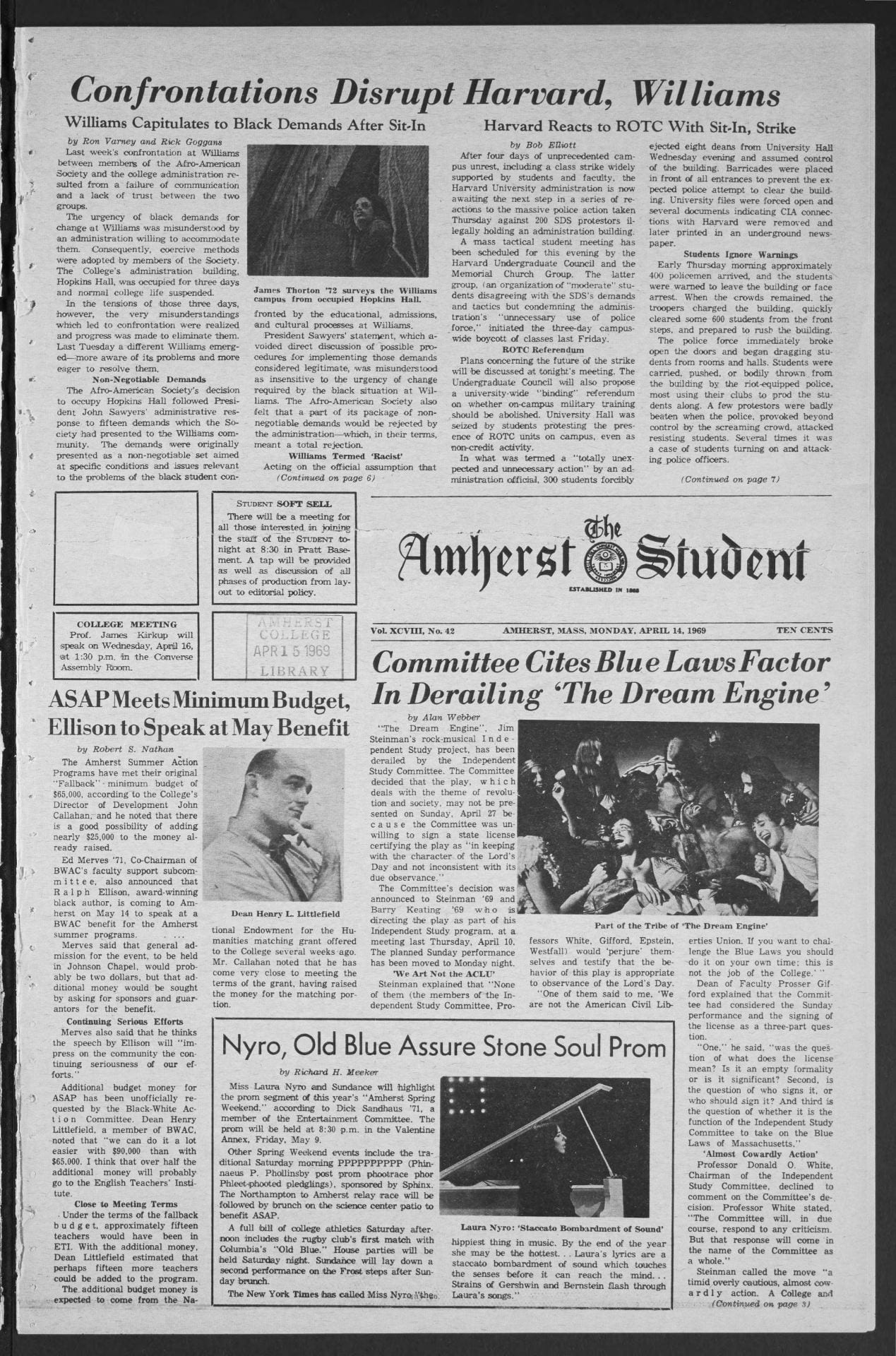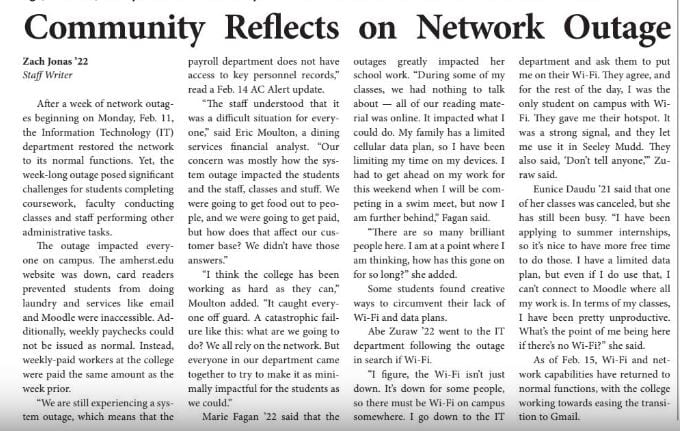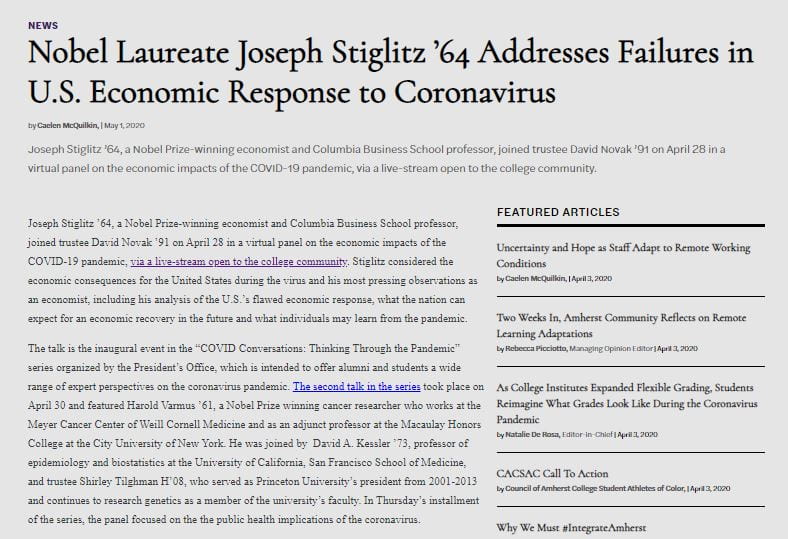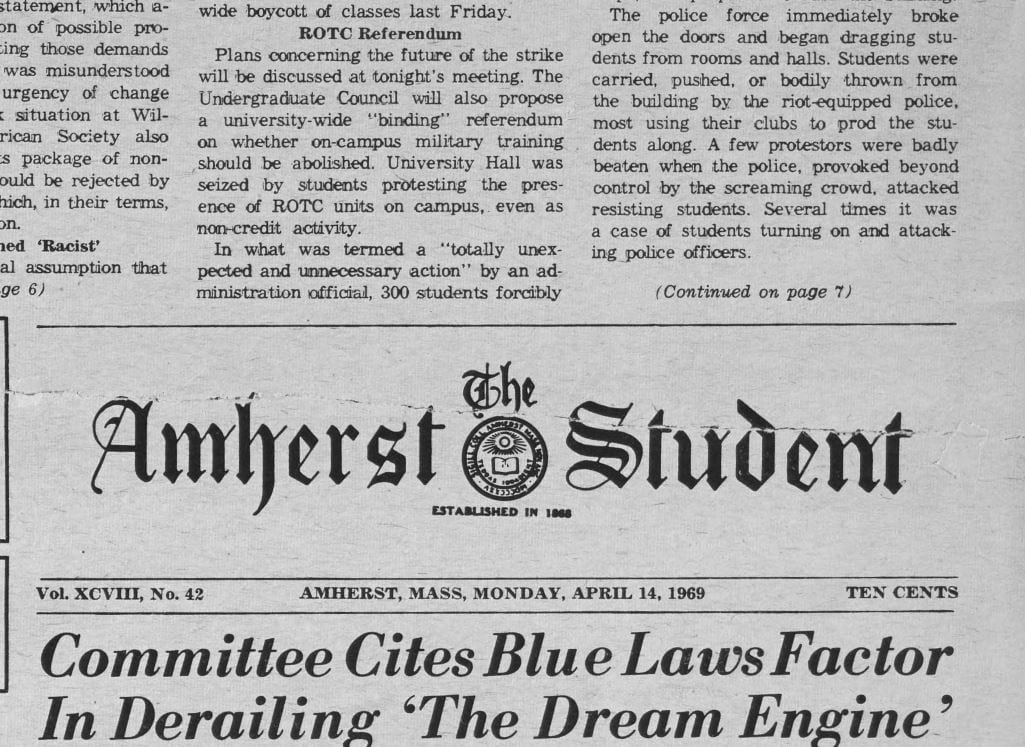An Analysis of the Use of “Disaster” Corpus in The Amherst Student, 1880-90 vs 1980-90
“It’s such a disaster!” We hear phrases like this every day. Depending on the contexts, we interpret what “disasters” might refer to, possibly from as trivial a poor exam performance to as significant a world war. Not unexpectedly, writers and editors of The Amherst Student use “disaster” in various genres to describe different events and express a plethora of emotions. With textual analysis and topic modeling tools, we examine the context, correspondence, genre, and emotions of using “disaster” in two separate decades across a century’s time– 1880-1890, and 1980-1990.
Tools and Methods
Sources
The Amherst Student is the newspaper of Amherst College. Established in 1868, The Student is the oldest weekly college publication in the country, with more than 2,000 copies circulated per issue. The Student is published every Wednesday of the academic year, with the exception of vacations and exam periods, and is distributed to members of the college and the communities of Amherst, Hadley, and the Five College area free of charge, as well as to alumni and parents by subscription.
The Student is written, produced, and published by an all-volunteer team of dedicated Amherst students. The Student and its staff are committed to a standard of conscientious reporting and quality writing. Editorials are written by the managing opinion editors.
Topic Modeling Software
Voyant Tools is an open-source, web-based application for performing text analysis. It supports scholarly reading and interpretation of texts or corpus, particularly by scholars in the digital humanities, but also by students and the general public. It can be used to analyze online texts or ones uploaded by users.
Lexos is a web-based tool to help researchers explore designated corpus of digitized texts. The primary motivation is to researchers find the explorer spirit as they apply computational and statistical probes to their favorite collection of texts. Lexos provides a workflow of effective practices so researchers are mindful of the many decisions made in their experimental methods.




You must be logged in to post a comment.